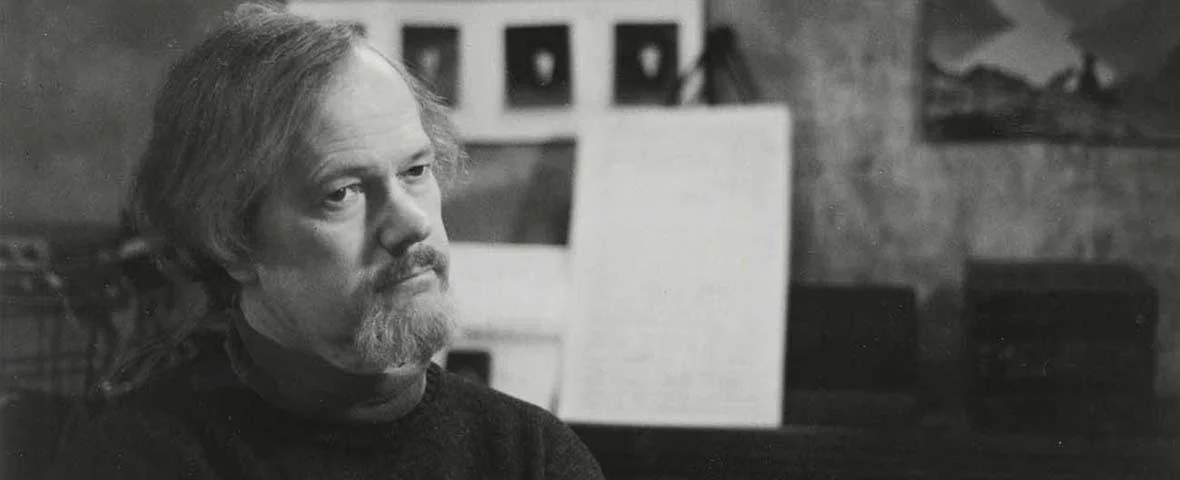I premiered his work Rave at the Festival that week, a trio for violin, cello, piano, and pre-recorded bird calls looped expressively and providing a fascinating counterpoint with the music being played by acoustic instruments. He took me under his wing, saw a kindred spirit and served as a valuable mentor for the next few years. I needed this, that and the permission to write music that was free, direct, and intimate.
Of his works, Fog Tropes was my first entry point to this dark and moody aesthetic. I played that wonderful New Albion recording nonstop while living in San Francisco, marveling that the sampled foghorns serving as the basis of the piece were recorded in my own backyard. Gradual Requiem was another stunning work and seemed me the high point of his unique brand of minimalism, with its signature slowly oscillating moody harmonic textures gradually unfolding over time against expressive electronic contrapuntal effects. His music, his approach, and his life gave myself and many of us a template to move forward as artists. We lost touch in the later years and I regret I didn’t get the chance to articulate these thoughts to him directly. Such is life. He changed the course of my life and affected many of my generation deeply. His legacy will carry forward through many, many generations.
